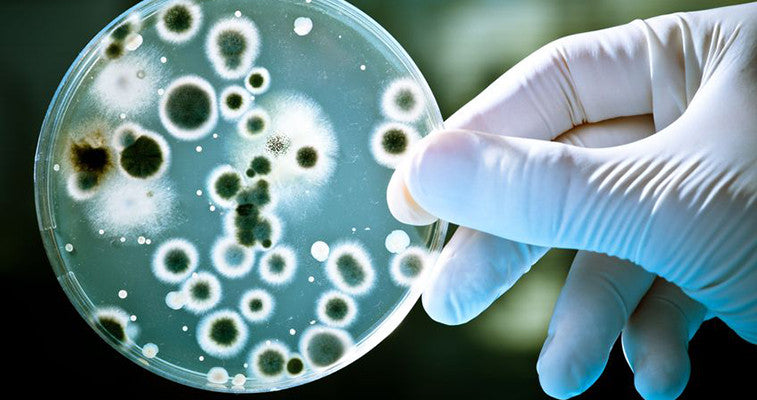
When I was in the US last year for the tour of my film The Connection, people kept talking about the microbiome. It seemed to be a buzzword. In fact, Fortune Magazine declared 2015 "The Year of the Microbiome." But before I started sculling kombucha, popping probiotics and fixating on a ‘microbiome diet’, I wanted to find out for myself what it is, what the research actually shows and what this could mean for our health. If you’re new to the craze, the human microbiome is the term being used to describe a bacterial world that subsists on humans and in humans, a world consisting of complex communities of single celled organisms that astonishingly outnumber our human cells at a ratio of ten to one. They’re found on your skin and hands, in your belly button and nose, and throughout your body. Scientists study these microbiota by looking at their DNA - that’s why it’s called the microbiome. In fact, there’s far more bacterial DNA in our body than there is DNA of our own. Genetically speaking we’re 99% microbiome. If anything, my research this week has taught me that I can no longer consider myself to be an individual. I am in fact part of a thriving ecosystem.
I’m always looking for new ways to understand the autoimmune disease that I was diagnosed with ten years ago. So when I learned that the microbiome has been shown to influence immune regulation and that it’s been linked to a range of diseases including obesity, inflammatory bowel disease, cancer, heart disease, multiple sclerosis and autism my interest was piqued. Is it possible that my gut ecosystem is out of balance and that’s what’s causing my immune system to malfunction? Could I take probiotic pills and live happily ever after? Perhaps all this research I’ve been doing for the last few years about the complex interactions between the state of our mind and our health can actually all be boiled down to the simple explanation that my gut needs some good bacteria.
I had suspected that the microbiome may be yet another over hyped, under researched concept being exploited to sell products and promise easy answers and cures to vulnerable people. What I’ve found is that while there are some alarming elements of quackery, there is also some extraordinary possibility. I’ll be turning my attention to this topic for the next few weeks. I’ll be looking at the role of stress and the microbiome, how our diet can influence the ecosystem and how allergies are increasingly being related to all this. But for now, lets start by understanding the mind-body health connection with our microbial companions.
There is increasing scientific focus on the variety of bacterial species that reside in our gut. They are important for metabolizing drugs, digesting food and providing energy and nutrients. Scientists now realize that they are not passengers but rather, they are more like co-pilots that influence our health, the size of our waistline, our mood, our stress resilience and even our behavior. The relationship is two-way. Researchers call it the gut-brain axis; where the brain sends signals about digestion and immune functions that influence gut microbes, and gut microbes make compounds like neurotransmitters that influence the brain.
This new information brings major breakthroughs for understanding the mind body connection when it comes to illness. For instance these researchers discovered that the bacteria called Oscillibacter make a chemical that acts as a tranquilizer and can lead to depression. One fascinating study I came across showed that normal mice could be made to act more anxiously just by swapping their microbiota with that of anxious mice and these researchers changed healthy mice into obese overeaters by giving them gut microbes from fat, gluttonous mice.
While I can see that at this point you might be about to rush out and stock up on ‘good bacteria’ laden food like kefir yoghurt and kimchi, I haven’t found any robust science showing they will make a difference to your health. While there is plenty of evidence showing that what you eat alters your microbiome, scientists have yet to work out what influence different bacterial species have on illness. In fact, one major issue is that scientists haven’t even been able to determine what a healthy microbiome looks like.
What seems to be emerging is that this is not about trying to get more specific species of good bacteria, but rather about getting a healthy balance of the species. People who lack diversity seem to be vulnerable to disease. This has been found to be true for obesity, inflammatory bowel disease and rheumatoid arthritis. So how do you create diversity? In his book ‘Follow Your Gut,’ leading microbiome researcher Professor Rob Knight highlights the importance of establishing a bio diverse bacterial population especially in the first year of life. He’s hesitant to make sweeping recommendations for adults, but for kids he says - get a dog, live on a farm, avoid antibiotics where possible (they napalm your gut), be breastfed and maybe take probiotics (good bacteria supplements). In that context it’s easy to see why probiotics are the first thing we turn to. Spending the day digging in the dirt or hanging out with Daisy the cow is not really a practical solution for most of us, as beneficial as their microbes may be.
I’ll turn to the research surrounding probiotics next week. But I’ll leave you with this thought, while there have been promising clinical showing the benefits of probiotics, this review of fourteen commercially available probiotic products found that only one actually contained all the ingredients listed on the label.





 The Connection (DOWNLOAD-TO-OWN)
The Connection (DOWNLOAD-TO-OWN) My Year Of Living Mindfully - Book
My Year Of Living Mindfully - Book




